Times have been rough for Elon Musk lately. First, a Delaware judge blocked a $50 billion executive compensation package. And his role as one of America’s most admired men vanished in the wake of his role as a key advisor to Pres. Donald Trump – the two men now engaged in a simmering feud.
But Musk could take solace due to a move approved by the Tesla board of directors. Already the richest man in the world – with a net worth variously estimated at around $400 billion – Musk could soon become the world’s first trillionaire if he lives up to the requirements of a new executive compensation package.

It’s “fundamental”
“Simply put, retaining and incentivizing Elon is fundamental to Tesla achieving these goals and becoming the most valuable company in history,” Tesla said in a shareholder letter jointly signed by Chairman Robyn Denholm and director Kathleen Wilson-Thompson, a member of a special board committee charged with determining CEO compensation.
Whether Musk really wants to stick around has been a question many folks have been asking over the last year or so, especially after he agreed to shift focus to running Pres. Donald Trump’s Department of Government Efficiency, or DOGE. Even after returning from Washington, D.C. in May, the 54-year old executive had to divide up his time between an assortment of enterprises, including not only Tesla but SpaceX, Neuralink and the Boring Co. Musk also warned that if he didn’t get 25% voting control at Tesla he might take some of his more promising technologies, including xAI and his robot work, and go elsewhere.
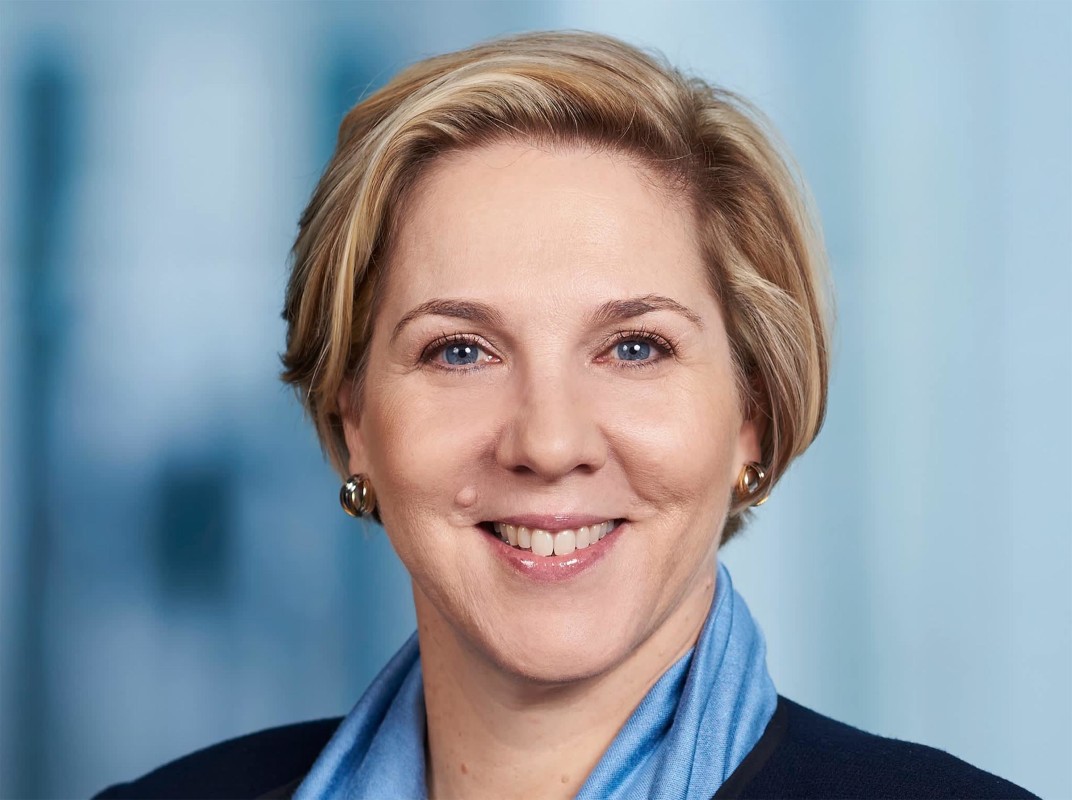
The Tesla board of directors had already tried to incentivize Musk to stick around, coming up with earlier pay packages of $50 billion that, at the time, already were described by critics as “egregious.” Delaware Chancery Court Chancellor Kathaleen McCormick agreed, last December blocking that payout as “fatally flaw(ed).” (Her decision is currently under appeal.) Even before approving the $1 trillion package, Tesla this month came up with a more modest, $29 billion compensation plan.
Tesla May Never be the Same
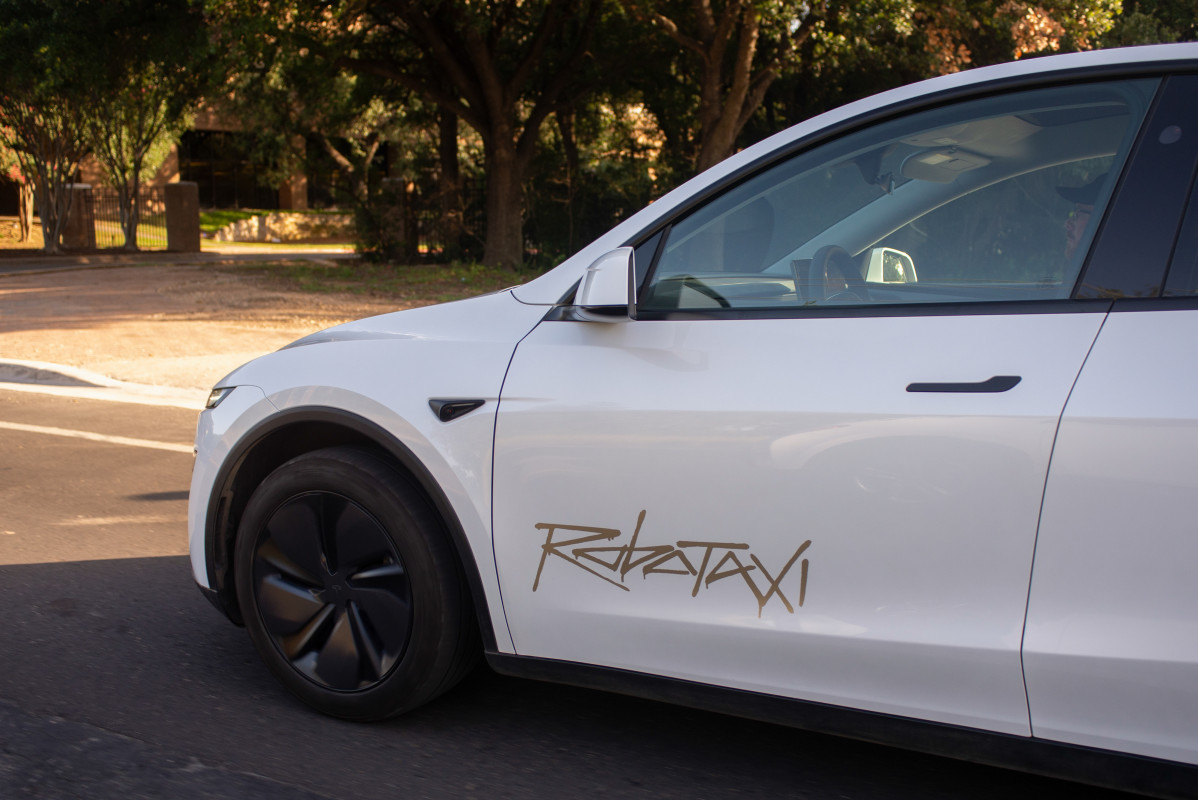
Since being named CEO in 2008, Elon Musk has become the face of Tesla, as readily identifiable as the battery-electric vehicles it’s primarily known for. But while the goal of the proposed compensation package is to keep Musk around for as long as a decade, those EVs could wind up becoming less and less important to the company’s future.
The decade-long plan – which, at the bare minimum, it was valued at $87.8 billion – calls for Musk to drive up Tesla’s market capitalization to $8.5 trillion, a nearly eight-fold increase from its Monday valuation of $1.12 trillion. To get there, Tesla will need to put an emphasis on businesses just getting off the ground. These include the robotaxi service it launched in June, artificial intelligence and the humanoid Optimus robot.
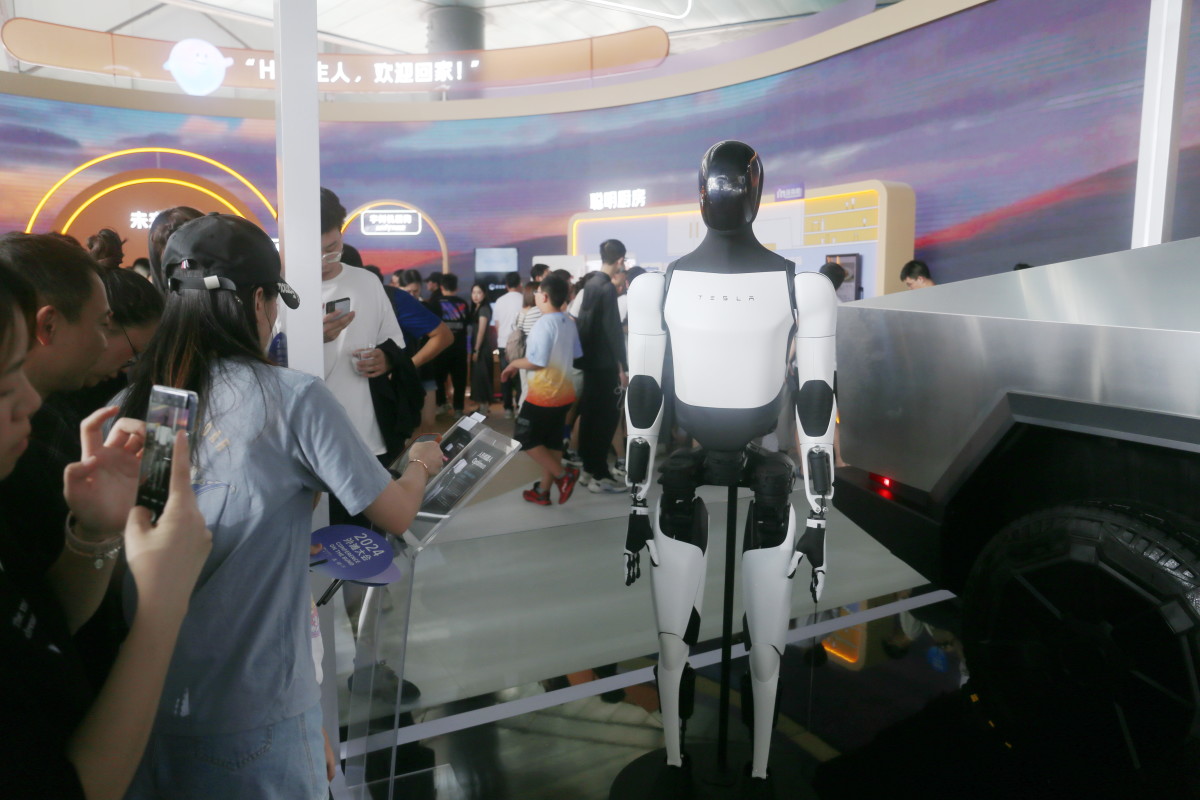
But What About EVs
The board isn’t necessarily calling for Musk to abandon Tesla’s currently core EV operations but there are reasons to expect them to become less and less important going forward, considering sales have been on the downslope for more than year,
Global registrations were off 6% during the second quarter and new reports show a continuing slump in Europe. Germany’s Federal Motor Transport Authority this week reported registrations fell 39% in that country last month – and are now off 56% for the year. With rare exception, Tesla’s numbers are down by double digits in other key European markets. In turn, earnings have been hard hit, as well, tumbling 16% for the second quarter.
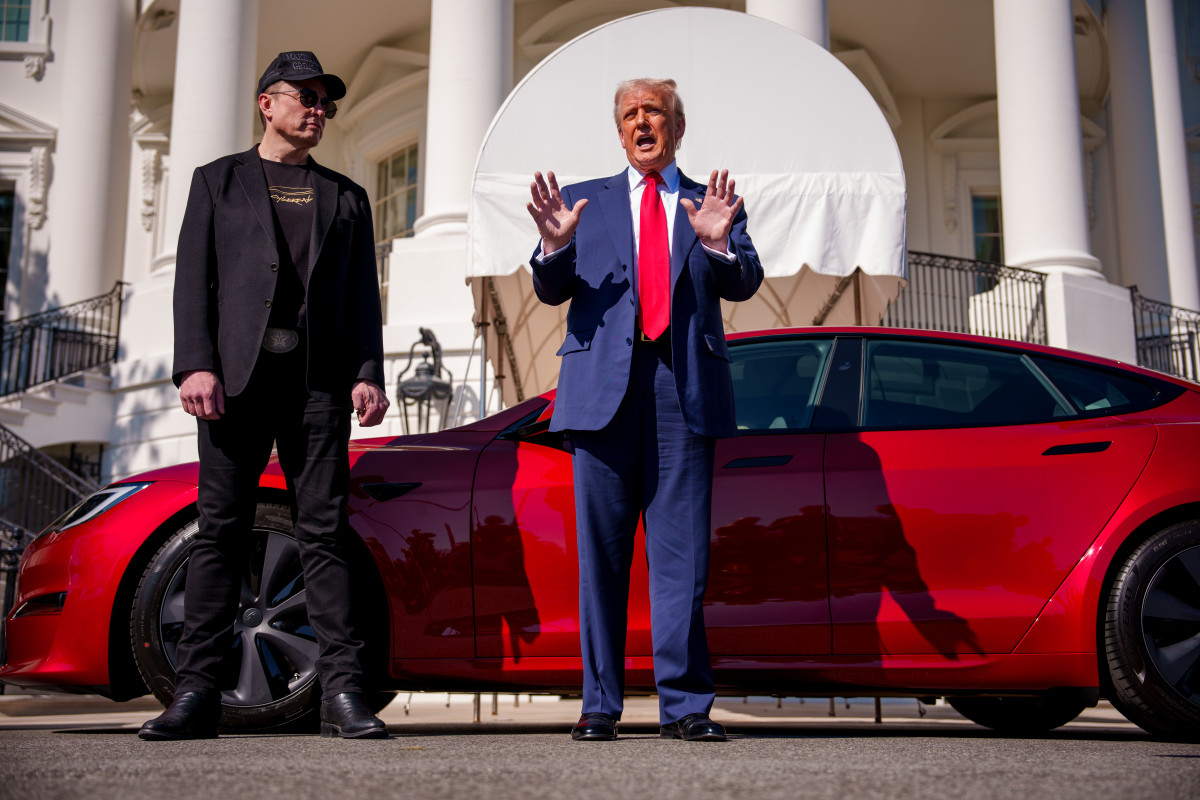
Ironically, Musk deserves much of the blame, according to Anthony Johndrow, CEO of Reputation Economy Advisors. “He’s done tremendous damage” to Tesla’s reputation due to his shift to the political far right, starting with Musk’s acquisition of Twitter – since renamed X – and then his ties to Trump. That has sorely alienated the primarily liberal community of EV buyers and led to protests, boycotts and even vandalism at many Tesla showrooms. “But that’s not relevant to the desired future valuation” of Tesla, said Johndrow, as the company shifts its focus.
What Now?
EVs aren’t entirely out of the picture. Among 12 tranches Musk must hit, Tesla will ultimately need to reach collective sales of 20 million battery cars. But it also will need sell 1 million Optimus robots and put 1 million robotaxis into operation.
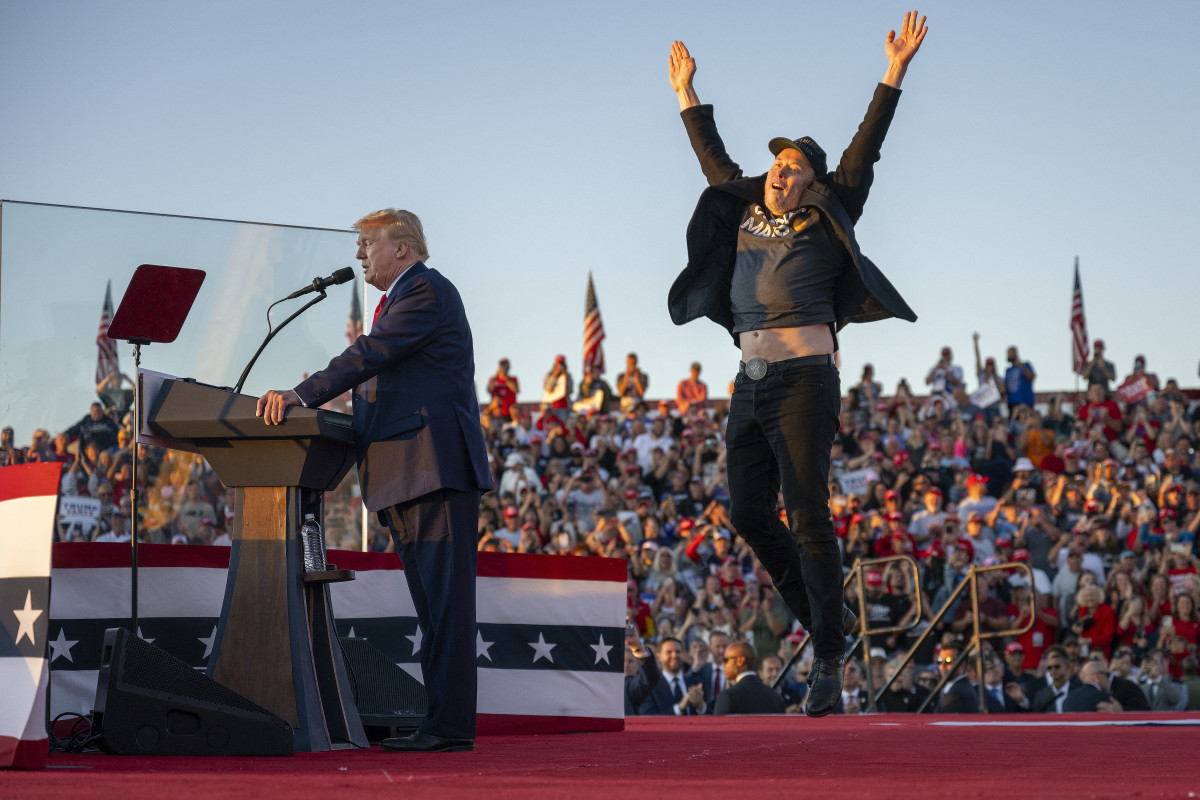
Whether it can meet those goals is uncertain, in part due to “Musk’s high public profile,” Tesla said in a federal filing. It “attracts significant scrutiny, and…some have questioned whether his personal views or outside activities might be a distraction from his leadership of Tesla. While media coverage often emphasizes these concerns, our direct experience with Musk does not support that characterization.” The board’s compensation committee, meanwhile, said it pressed the CEO for assurances he well back away from that high profile role in politics.
As Friday trading opened on Wall Street, investors appeared excited by the news, much as they were when Musk announced he was returning from Washington. The positive vote on the CEO’s earlier pay package clearly shows that investors believe he’s their best opportunity, despite political blowback.
A Stretch
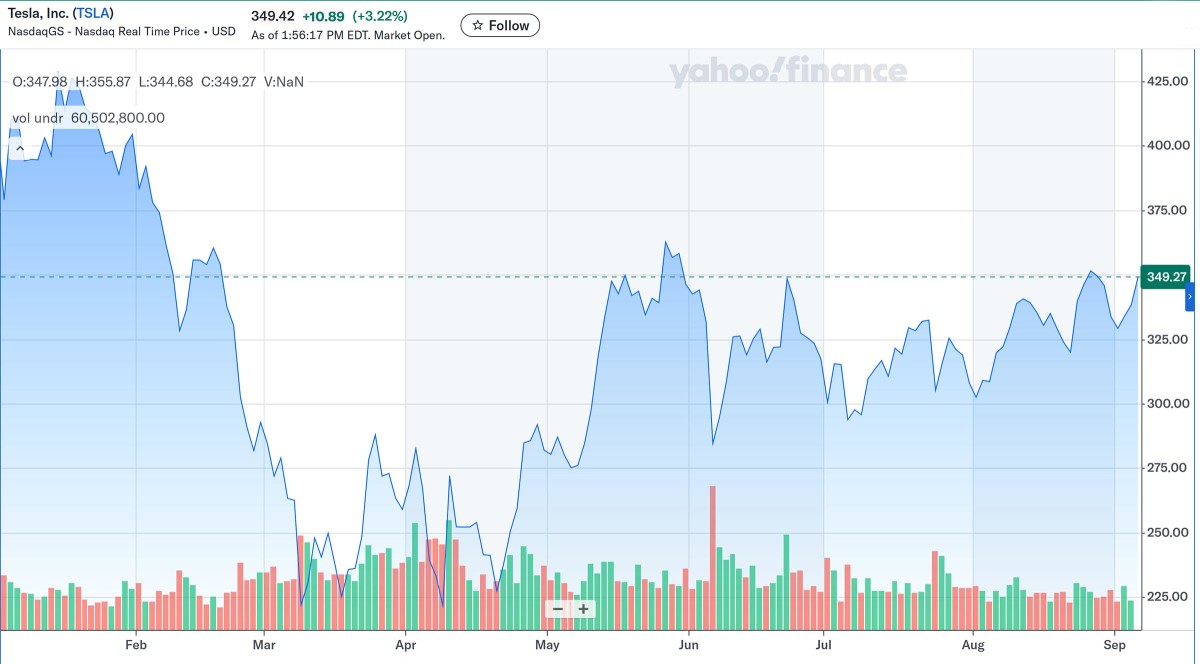
Feedback has been mixed from industry analysts, some using words like “a stretch.” Brian Mulberry, senior client portfolio manager at Zacks Investment Management, told the Bloomberg news service that the figures are “eye-popping, to say the least,” But he added that, “Bottom line, if all 12 award tranches are met, the compensation would reflect roughly 10% of the growth targets — that seems reasonable.”
What happens next remains to be seen, though several sources, talking on background, suggested the courts might eventually be brought into the picture. Tesla, however, has taken several steps to prevent a repeat of the legal battle that saw Musk’s prior, $50 billion compensation package scuttled. The company has moved its corporate registration from Delaware to Texas, where shareholder lawsuits are seen in less friendly terms. The board also revised corporate bylaws in May declaring that only shareholders with stakes above 3% of total Tesla shares have standing to sue. Whether that proposal passes legal muster has yet to be determined.

